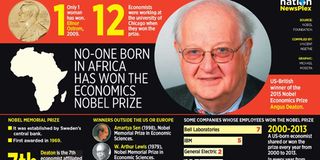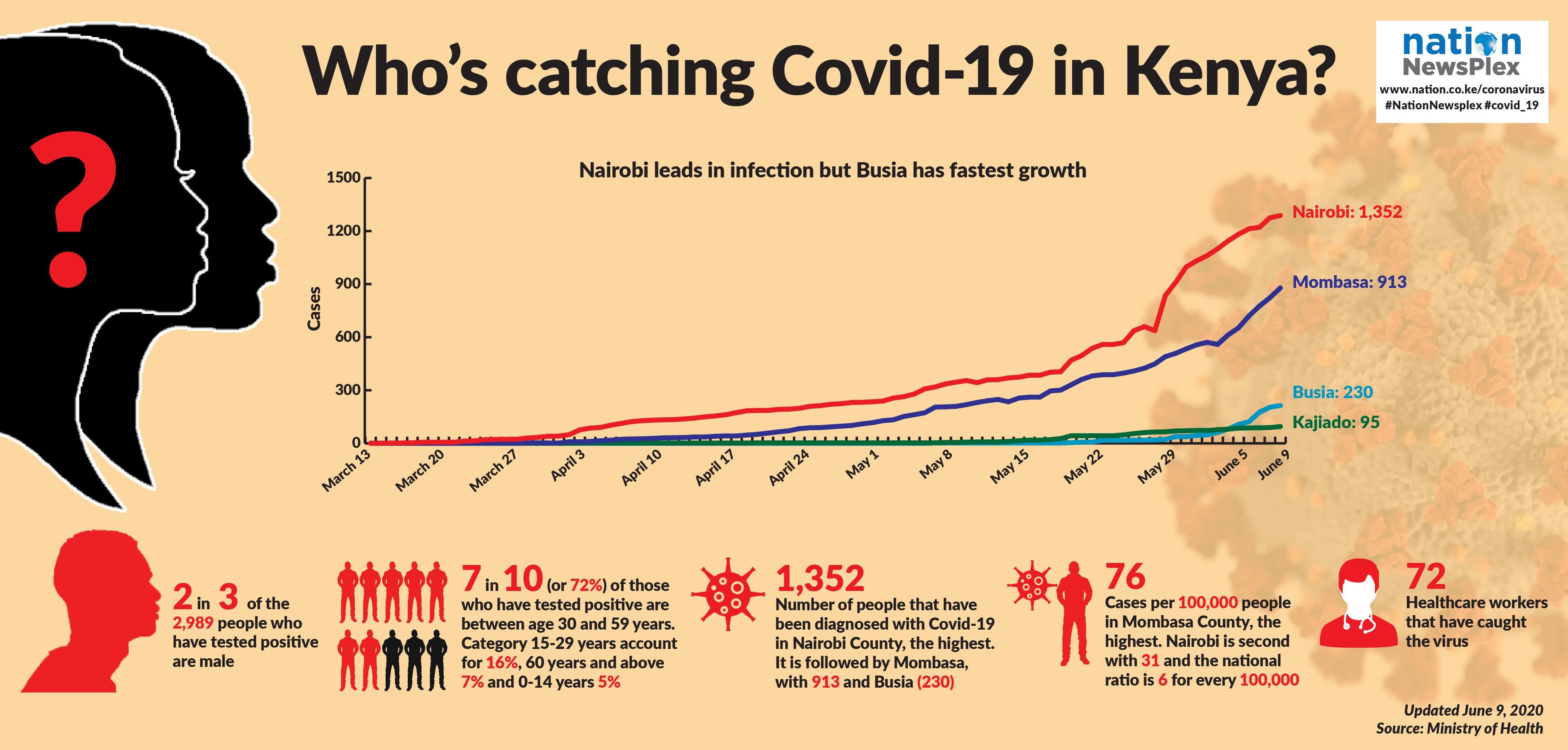Africa’s wait for Nobel prize in economics continues

What you need to know:
- However, the most prizes in economics have been won at the University of Chicago, where 12 faculty members were working when they won the prize.
- Nobel Foundation data also shows that although there is no Nobel Prize for business, many companies have employed researchers who have made prize-winning discoveries.
No person born in Africa, Central or South America, or Oceania has ever won the Nobel prize in economics, which was first awarded in 1969.
Princeton Economist Angus Deaton continues a trend of American dominance in the Nobel Prize for economics.
Although Professor Deaton was born in the United Kingdom, he is also an American citizen and was working at Princeton University when he won the award.
The United States has been the dominant country of origin for the winners of the Sveriges Riksbank Prize in Economic Sciences in Memory of Alfred Nobel, providing 43 of the 76 awarded economists to date.
The most Nobel Prizes won by employees of a single company are seven, by Bell Labs
Indeed for 14 consecutive years, from 2000 to 2013, the prize was either won singly by an American or shared with Americans. In 2014, the winner was John Tirole, a Frenchman.
Professor Deaton becomes the seventh Nobel Prize winner to have won the prize while working at Princeton University, a list that includes renowned New York Times columnist Paul Krugman. However, the most prizes in economics have been won at the University of Chicago, where 12 faculty members were working when they won the prize.
Globally, North America and Europe have produced all the winners of the Nobel Prize for Economics, with the exception of Amartya Sen from Bangladesh who won it in 1998 and Daniel Kahneman from Israel, who won it in 2002. Dr Kahneman was working at Princeton when he won the Prize.
INVENTING THE TRANSISTOR
Despite this lack of recognition, James Shikwati, a self-taught economist who is the director of the Inter Region Environmental Network (IREN), says economists in Africa should not see this as condemning them to merely copy Western economic ideas. “We have a big challenge to organically evolve thought process that resonate with Africa’s unique challenges, namely a continent rich in resources and ironically known for its poverty,” he wrote in an email.
“For example, it is important to counter prevailing theories on Aid and African development and the role of non-state actors in Africans’ failure to comprehend how the world works, and evolve smart international development cooperation strategies,” he added.
Nobel Foundation data also shows that although there is no Nobel Prize for business, many companies have employed researchers who have made prize-winning discoveries.
The most Nobel Prizes won by employees of a single company are seven, by Bell Labs, which is now the research arm of French telecommunications giant Alcatel-Lucent.
In particular, three Bell scientists, William Shockley, John Bardeen and Walter Houser Brattain, were awarded the Nobel Prize in Physics in 1957 for inventing the transistor, which revolutionised computing.
Five employees from another US company, IBM, have won Nobel Prizes, while GE has had two employees win Nobel Prizes. The latter two companies have a presence in Kenya and one of IBM’s global research labs, IBM Research-Africa, is located in Nairobi.
30 YEARS AT MERCK
Other companies that have employed Nobel Prize-winning researchers include Du Pont, Texas Instruments, Shimadzu Corporation of Japan, Swedish gas company AGA.
Although the Nobel Foundation notes the current institution a winner is affiliated with at the time he or she wins the prize, the work that is honoured with a prize may have been completed elsewhere.
For example, William C. Campbell, who shared the Nobel Prize for Medicine was affiliated with Drew University when he was awarded for discovering a cure for river blindness, but he worked on the drug while he was at Merck & Co, where he had spent more than 30 years.
“We are particularly proud of our colleague Dr Campbell whose innovation, passion and dedication to fighting diseases during his 30-year career at Merck enabled the development of Mectizan,”said the company’s Chairman and CEO, Kenneth C. Frazier in a statement.
Similarly, when Canadian Myron Scholes was awarded the Nobel Prize for economics in 1997 he was working at Long Term Capital Management, a hedge fund that collapsed in 1998.




